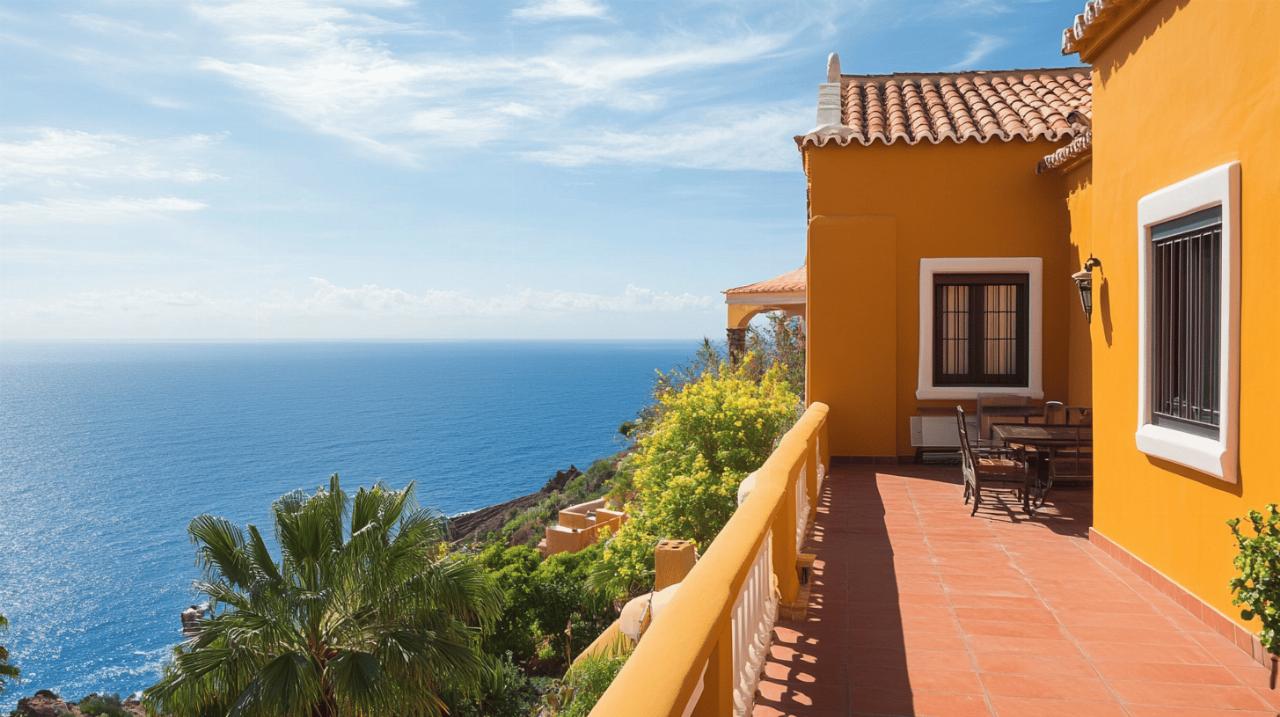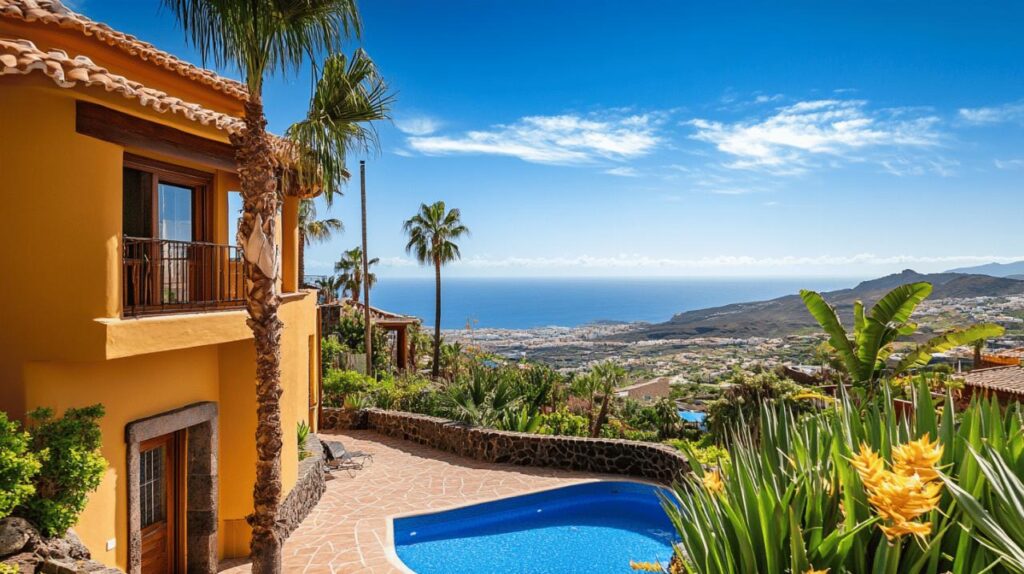Dreaming of owning a slice of paradise in the Canary Islands? With year-round sunshine, diverse landscapes, and a relaxed lifestyle, it’s no wonder these Spanish islands are increasingly popular with international property buyers. Whether you’re seeking a holiday home, permanent residence, or investment opportunity, understanding the local market and legal requirements is essential for a smooth purchase process.
Choosing the Right Island and Location
Unique characteristics of each Canary Island
The Canary archipelago consists of seven main islands, each with its distinct personality and appeal. As experts at canaryislandspropertyworld.es frequently highlight in their property guides, selecting the right island is your first crucial decision. Tenerife, the largest island, offers vibrant areas like Costa Adeje and Los Cristianos, popular with overseas buyers seeking established communities and amenities. The northern towns such as Puerto de la Cruz provide a more authentic Spanish atmosphere.
Gran Canaria presents an attractive blend of beautiful beaches and cosmopolitan living. Las Palmas, the capital, buzzes with urban energy, while southern resorts like Maspalomas and Playa del Inglés cater to sun-seekers and tourists. Lanzarote stands out with its unique volcanic landscapes and controlled development featuring whitewashed, low-rise buildings that complement the natural environment. Puerto del Carmen and Playa Blanca remain particularly sought-after locations.
Factors to consider when selecting your ideal area
When choosing your location, consider your lifestyle priorities and long-term plans. Beach lovers might gravitate toward Fuerteventura with its expansive coastlines and surfing opportunities, making Corralejo an excellent choice. Digital nomads increasingly select this island for its relaxed vibe and growing remote worker community. For nature enthusiasts seeking tranquillity, the smaller islands of La Palma, La Gomera, and El Hierro offer unspoiled landscapes away from mass tourism.
Property prices vary significantly between islands and locations. Generally, the Canary Islands offer better value than mainland Spain, with average apartment prices ranging from €150,000-€280,000 in Fuerteventura to €200,000-€350,000 in Tenerife. Consider proximity to amenities, accessibility, and whether you prefer a tourist area or a more authentic local community.
Working with local property professionals
Finding a reputable Canary Islands estate agent
A knowledgeable local estate agent is invaluable when navigating the Canary Islands property market. Look for professionals who specialise in your chosen island and speak your language. Many agencies, like those featured on canaryislandspropertyworld.es, offer multilingual services in English, Spanish, Dutch, and French to accommodate international buyers.
Reputable agents will have extensive local knowledge, understand the legal framework, and maintain connections with other professionals you’ll need during your purchase journey. They can provide insights into different areas, property values, and potential rental returns if you’re considering investment. Always verify that your agent is properly registered and has relevant experience working with foreign buyers.
The importance of hiring a Spanish solicitor
While estate agents guide your property search, a Spanish solicitor safeguards your legal interests throughout the transaction. An independent lawyer specialising in Spanish property law is essential, not an optional extra. They will conduct thorough due diligence, reviewing contracts, verifying ownership, and checking for any debts or encumbrances attached to the property.
Your solicitor will obtain a Nota Simple from the Land Registry, a crucial document detailing ownership history and any charges against the property. This step is vital because in Spain, unpaid debts tied to a property transfer to the new owner. Legal experts can also help with understanding and translating Spanish legal documents, preventing costly misunderstandings that could arise from language barriers.
Understanding the financial aspects
Breaking down all property purchase costs
The purchase price is just the beginning of your financial commitment when buying in the Canary Islands. Additional costs typically add 10-12% to your budget. Property Transfer Tax (ITP) in the Canary Islands is generally 6.5%, lower than some other Spanish regions. Notary fees range from €800 to €1,200, while Land Registry fees amount to approximately 0.5-1% of the property value.
You’ll also need to account for the Plusvalía tax, which applies to the increase in the land’s value since its last sale and is typically paid by the seller but can be negotiated. Legal fees usually range from 1-1.5% of the purchase price. If you’re financing your purchase, mortgage arrangement fees and valuation costs will apply. Creating a comprehensive budget that includes all these elements is essential for avoiding financial surprises later in the process.
Obtaining your NIE number for tax purposes
Before purchasing property in Spain, you must obtain a NIE number (Número de Identificación de Extranjero), your Spanish tax identification number. This essential document is required for all financial transactions in Spain, including property purchases, opening a bank account, and connecting utilities. You can apply for your NIE at the Spanish Embassy in your home country or at a police station in Spain.
The process typically takes a few weeks, so it’s advisable to start early. Many property professionals in the Canary Islands, including those working with canaryislandspropertyworld.es, can assist with this application. Once you have your NIE, you’ll need to open a Spanish bank account to handle the property transaction and ongoing expenses such as utility bills and property taxes.
Property checks and due diligence
Arranging proper surveys and inspections
 Never underestimate the importance of thorough property inspections before committing to a purchase. While structural surveys aren’t as common in Spain as in the UK, they’re highly recommended, particularly for older properties. A comprehensive survey can identify potential issues with the building structure, electrical systems, plumbing, and damp problems that might not be immediately visible.
Never underestimate the importance of thorough property inspections before committing to a purchase. While structural surveys aren’t as common in Spain as in the UK, they’re highly recommended, particularly for older properties. A comprehensive survey can identify potential issues with the building structure, electrical systems, plumbing, and damp problems that might not be immediately visible.
For newly built properties, ensure all construction work meets current building regulations and has the necessary certificates. If buying an off-plan property, verify that the developer has secured a bank guarantee to protect your payments should the development not be completed. This level of due diligence might seem excessive, but it can save substantial money and stress by identifying problems before they become your responsibility.
Verifying planning permissions and legal status
The Canary Islands, like much of Spain, has issues with illegal construction and zoning violations. Confirming the legal status of your potential property is crucial. Your lawyer should verify that the property has the correct planning permissions and complies with local zoning laws, which dictate whether a property can be used for residential, commercial, or tourist purposes.
Properties without proper permissions can face fines or even demolition orders. Your legal team should also check for any planned developments in the surrounding area that might affect your property’s value or your enjoyment of it. This thorough verification process protects your investment and ensures you won’t inherit someone else’s legal problems.
Navigating the purchase process
From reservation agreements to completion
The Spanish property buying process follows several distinct stages. Initially, you’ll sign a reservation contract (contrato de reserva) and pay a reservation fee, typically €3,000-€6,000, to remove the property from the market. This is followed by a preliminary sales and purchase agreement (contrato de compraventa), accompanied by a larger deposit of approximately 10% of the purchase price.
The final stage involves signing the deed of sale (escritura de compraventa) before a notary, paying the remaining balance, and receiving the keys. Throughout this process, your lawyer will conduct checks and prepare for completion. After completion, you’ll need to register the property at the Land Registry, transfer utilities to your name, and prepare for annual property tax returns. The entire process typically takes two to three months from reservation to completion.
Negotiation strategies in the Canary Islands market
Understanding local market conditions is key to successful negotiation. Research similar properties in your chosen area to establish fair market value. The Canary Islands property market has been steadily strengthening, with particular demand for luxury properties and sustainable developments. However, negotiation remains a standard part of the buying process.
Consider factors that might strengthen your position, such as being a cash buyer, flexibility on completion dates, or willingness to purchase furniture. Timing can also impact your negotiating power, with sellers sometimes more motivated during quieter periods. Work closely with your estate agent to develop an appropriate offer strategy, but always let your budget and the property’s condition guide your final decisions.
Investment and rental considerations
Tourist rental regulations and licences
If you’re planning to rent your property to tourists, understanding the regulatory framework is essential. Holiday rental regulations in the Canary Islands have tightened in recent years, with properties requiring specific licences (Vivienda Vacacional) to operate legally as short-term tourist accommodation. These licences have strict requirements regarding property standards, safety features, and location.
Not all properties qualify for tourist rental licences, particularly those in areas designated primarily for residential use. Regulations vary between islands and municipalities, so specific local research is crucial. Operating without the proper licence can result in substantial fines. If rental income is a key part of your investment strategy, verify the property’s rental potential and licence eligibility before purchase.
Maximising your property investment potential
The Canary Islands offer attractive investment potential due to their year-round tourism, stable property market, and tax advantages. The islands enjoy lower property taxes compared to mainland Spain and benefit from special economic zone status. Tourism continues to drive rental demand, particularly in popular areas of Tenerife, Gran Canaria, and Lanzarote.
To maximise returns, consider emerging areas with development potential such as El Médano in Tenerife or areas undergoing regeneration. Property management services can handle maintenance and tenant relations if you’re not residing locally. Diversifying your investment approach and staying informed about market trends will help optimise your returns while managing risks such as market volatility, maintenance costs, and regulatory changes. With careful planning and professional guidance, your Canary Islands property can provide both lifestyle benefits and solid investment returns.

